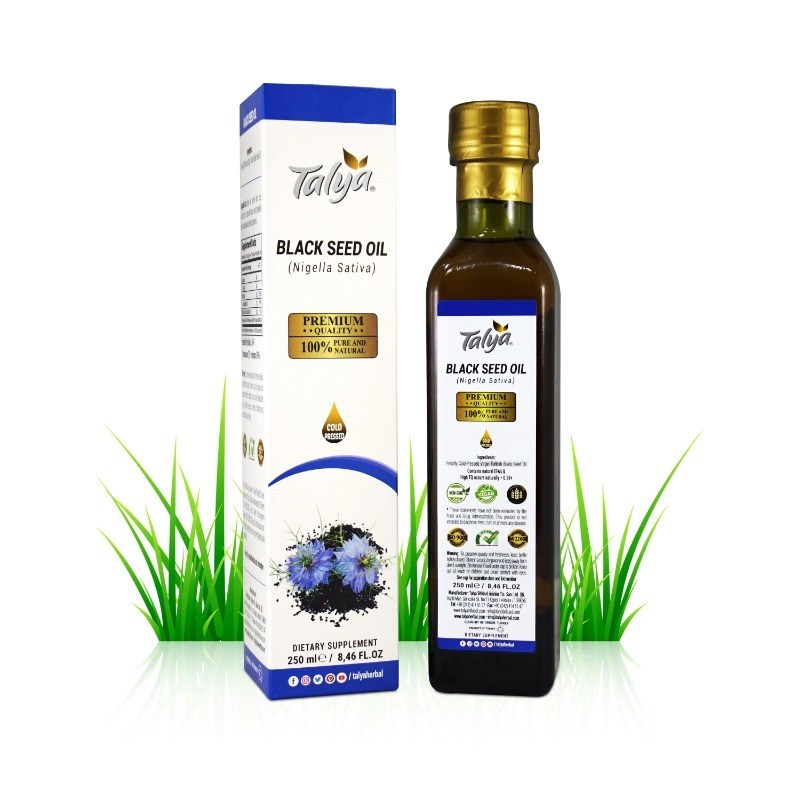I wanted to write about Black Seed Oil, also known as Black Cumin Seed Oil, since it has been gaining in popularity, though it seems to have a vagueness that surrounds it as to what it actually does.
Most articles on black seed oil seem to say that it’s “cures everything”, a claim that always makes me extremely skeptical since it brings to mind the unscrupulous snake oil salesmen of the last century.
The more I looked into black seed oil, however, I found that there has been study after study done on its benefits, with great results. Research has found it to have beneficial effects on so many different aspects of health, including metabolic syndrome (a condition characterized by excess weight and high blood sugar), high blood pressure, high cholesterol, diabetes, respiratory health, skin conditions, and more. It’s impressive due to the sheer volume of studies that have been done that have shown benefit for so many vastly different things.
Here’s a link to a review on Black Seed Oil studies.
This is another review on the researched benefits of black cumin seeds.
One of my favorite benefits for black seed oil is its effect on the immune system. One of black seed oil’s natural compounds is thymoquinone, a potent immune booster that strengthens and activates the immune system’s T-cells (the white blood cells that help to identify harmful invaders like bacteria and viruses). Research has shown black seed to have antibacterial and antiviral effects against a number of infectious diseases including strep and h. pylori bacteria and viruses like hepatitis and even HIV. That isn’t to say that black seed oil is necessarily a cure-all for those conditions, but that it has been found to have beneficial antibacterial and antiviral effects against those diseases.
In addition to immune boosting effects, black seed oil has further benefits to the respiratory system itself, including being extremely helpful for asthma patients. In one study, people with asthma used black seed oil daily for three months and experienced impressive benefits in respiratory functioning and a reduction in asthma symptoms.
The interesting thing about black seed oil is that it does not just seem to have immune boosting effects, but rather has shown to have an immune modulating activity- boosting the immune system when needed, but also helping to calm down the excessive immune response seen in autoimmune disorders like rheumatoid arthritis. One placebo controlled study on rheumatoid arthritis found that women who took black seed twice daily for a month found a reduction in their symptoms of RA.
Black seed oil also appears to have protective effects for a number of the body’s different systems and organs, reducing destructive, toxic effects on the brain, liver, lungs cardiovascular system, and the digestive tract. This article has more in-depth information on the significant protection black seed has from toxic damage from a variety of sources (scroll down to about halfway through to read more about black seed oil’s beneficial protective effects).
Black seed oil can also have beneficial effects on eczema and psoriasis and for those conditions can be taken both internally and used topically for relief.
I feel like I’ve gone on and on already about the benefits of black seed oil, but in truth, there are so many more and I’ve only mentioned a few. Black seed oil has a long history of use for a variety of ailments. It is native to the Middle East and Africa, and has been mentioned in both the Old Testament and the Quran. The prophet Muhammad is even quoted as saying, “Use the Black Seed for indeed, it is a cure for all diseases except death.” Suffice it to say that it has a long history of impressive benefits and use- even back to the time of the Egyptians!
The black seed oil we recommend is by a company called Talya. As many of you know, we’re particular about the brands and products we carry. We chose this brand of black seed oil specifically since it has the highest amount of the beneficial active ingredients in black seed oil and is unrefined and cold pressed. Also, Talya does third party testing on each batch of black seed oil for potency and to make sure that it is free from pesticides, herbicides, as well as other chemicals and contaminants. Talya’s black seed oil meets France’s standards for “Eco Certification” and is in the process of undergoing organic certification processes by the USDA.
The recommended dosages for black seed oil is one teaspoon twice daily for preventative health or two teaspoons twice daily, up to as much as six teaspoons a day (in divided doses) for acute needs or for recovering from an illness.
Black seed oil should be taken with food to help absorption and it’s also important to shake the bottle vigorously before using it, since its beneficial compounds can separate when the bottle sits.







